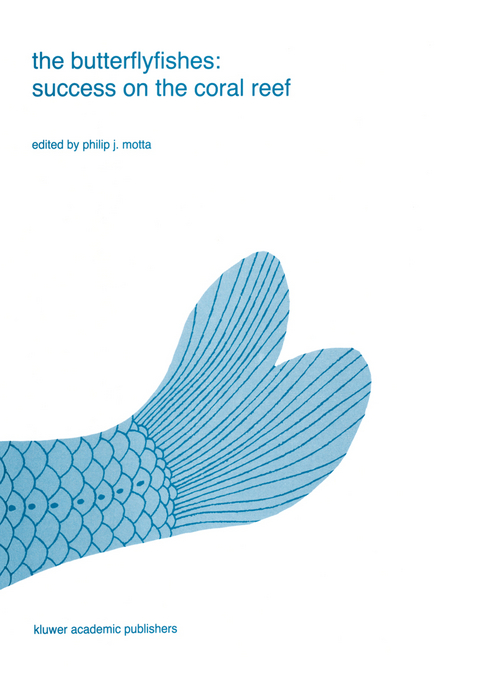
The butterflyfishes: success on the coral reef
Springer (Verlag)
978-0-7923-0168-4 (ISBN)
Biogeography of the Chaetodontidae: an analysis of allopatry among closely related species.- Circumtropical patterns in butterflyfish communities.- Correlations between chaetodontid fishes and coral communities of the Gulf of Aqaba (Red Sea).- Environmental determinants of butterflyfish social systems.- Orientation behavior of butterflyfishes (family Chaetodontidae) on coral reefs: spacial learning of route specific landmarks and cognitive maps.- Larval biology of butterflyfishes (Pisces, Chaetodontidae): what do we really know?.- Implications of feeding specialization on the recruitment processes and community structure of butterflyfishes.- Sexual differentiation, gonad development, and spawning seasonality of the Hawaiian butterflyfish, Chaetodon multicinctus.- Spawning behavior of Chaetodon multicinctus (Chaetodontidae); pairs and intruders.- Aspects of the spawning of western Atlantic butterflyfishes (Pisces: Chaetodontidae).- Eye camouflage and false eyespots: chaetodontid responses to predators.- Dentition patterns among Pacific and Western Atlantic butterflyfishes (Perciformes, Chaetodontidae): relationship to feeding ecology and evolutionary history.- Prey selection by coral-feeding butterflyfishes: strategies to maximize the profit.- Temporal and areal feeding behavior of the butterflyfish, Chaetodon trifascialis, at Johnston Atoll.- Feeding habits of Japanese butterflyfishes (Chaetodontidae).- The brain organization of butterflyfishes.- The eye muscles and their innervation in Chaetodon trifasciatus (Pisces, Teleostei, Chaetodontidae).- The membranous labyrinth and its innervation in Chaetodon trifasciatus (Pisces, Teleostei, Chaetodontidae).- Strengths and weaknesses in butterflyfish research: concluding remarks.- Species and subject index.
| Erscheint lt. Verlag | 30.6.1989 |
|---|---|
| Reihe/Serie | Developments in Environmental Biology of Fishes ; 9 |
| Zusatzinfo | VIII, 248 p. |
| Verlagsort | Dordrecht |
| Sprache | englisch |
| Maße | 178 x 254 mm |
| Themenwelt | Naturwissenschaften ► Biologie ► Evolution |
| Naturwissenschaften ► Biologie ► Ökologie / Naturschutz | |
| ISBN-10 | 0-7923-0168-4 / 0792301684 |
| ISBN-13 | 978-0-7923-0168-4 / 9780792301684 |
| Zustand | Neuware |
| Informationen gemäß Produktsicherheitsverordnung (GPSR) | |
| Haben Sie eine Frage zum Produkt? |
aus dem Bereich


